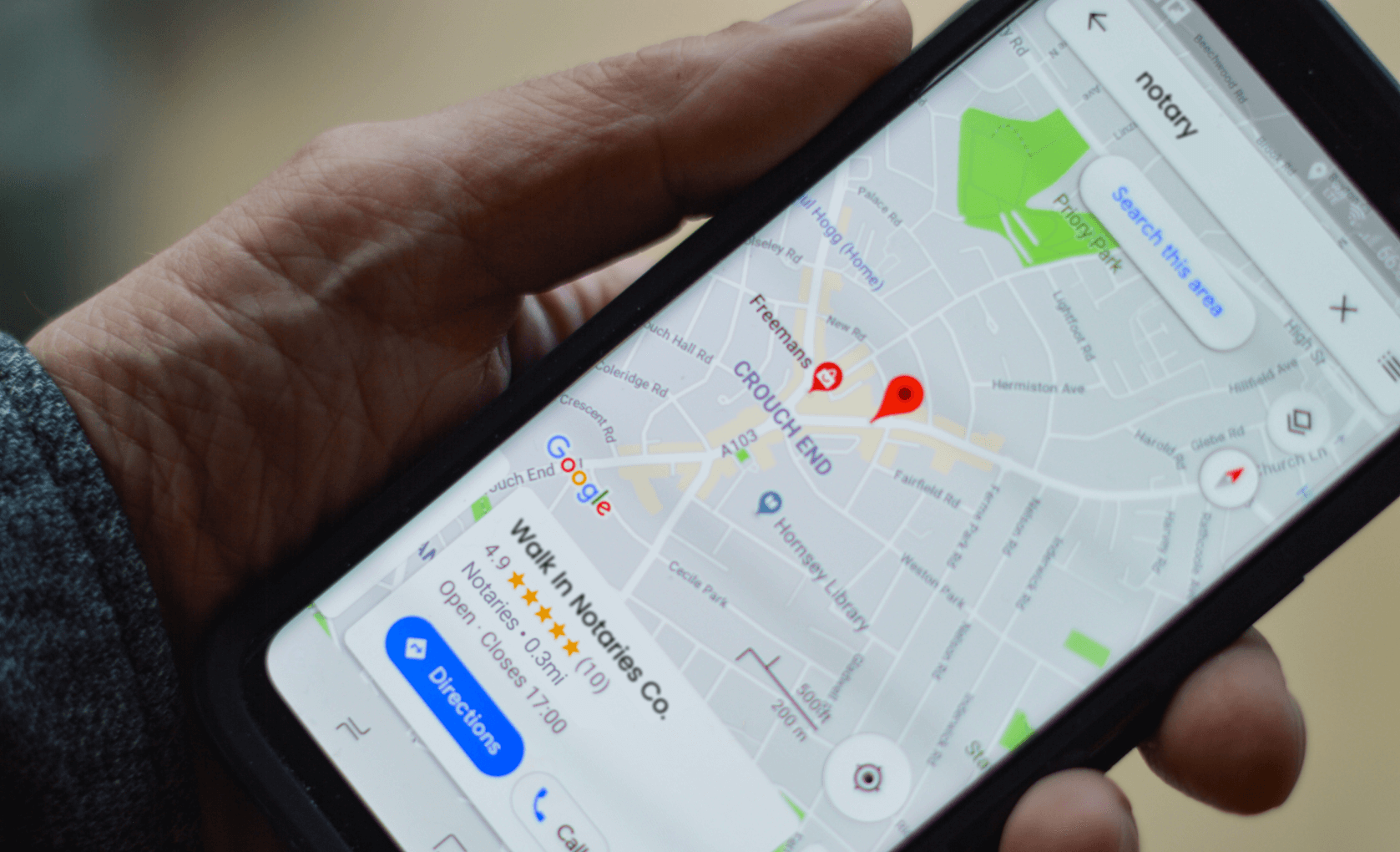What States Allow Remote Notarization?

Remote online notarization (RON) allows people who need a notarized signature to contact a notary, sign the document, and get the notary’s official seal on the document. The only difference is they can do it all without leaving home.
Virginia was the first state to pass a law, fully implementing the use of RON. Other states have quickly followed, and here’s what we know so far.
What Is Remote Online Notarization?
Remote online notarization permits you to get a document signed, verified, and sealed without leaving your house or office. You meet a licensed notary online, present your documents and sign your papers digitally. The notary verifies your identity, signs, and digitally notarizes the document. It all happens online.
The Wave of the Future
If you’ve ever had to get a document notarized, you know how challenging it can be. You have to find a notary, determine if the notary has convenient hours, gather your papers, and drive around town.
Finding a Notary Can Be Tough
Typically, notaries don’t have full-time jobs as notaries. They are usually working at other businesses and perform notarizations on the side. You can’t just walk in and expect to get a document notarized. If you’re lucky, you might find a mobile notary who will come to your home. Even in that case, however, you still need to make an appointment.
RON takes that antiquated process into the future. With RON, you conduct the entire transaction online. You and your notary “meet” in a virtual office room. The notary verifies your identity, examines your signed paperwork, and attaches a digital notarial seal to your paperwork.
Remote Online Notarization Is Gaining Popularity

Remote online notarization has been around for several years, but it really exploded during the COVID-19 pandemic. As states went into lockdown and businesses began enforcing social distancing rules, people realized that certain life events didn’t stop. They still needed to write their wills, sell property, conduct real estate transactions and assign powers of attorney. All those actions require documents with properly notarized signatures.
Many states responded by passing emergency legislation that allowed RON to have the same legal weight as documents notarized in person.
How Does Remote Notarization Work?
To do online notarizations, a notary must first have a valid notary’s license in good standing. They must then get special training to understand the requirements and legal issues surrounding online notarization. These notaries get special training on the proper, safe use of online notary platforms.
States that permit online notarization have stringent requirements for the notaries. The notaries must show the platform they’re using meets the state’s standards for security and identity protection. They must maintain an online notary journal that reports every notarization.
How Does Online Notarization Work?
To use the service, a customer goes online and signs up with one of the many free online notary platforms. The customer requests a notarization appointment, and an online notary contacts the customer to set up the meeting.
Electronic Notarization and Remote Notarization: Are They the Same Thing?
Remote online notarization is sometimes confused with electronic notarization. The latter, however, is a different type of transaction.

In electronic notarization, the notary and the signer still meet physically, but the documents and their signatures are digital. Have you ever signed an insurance policy your agent e-mailed you? That’s an example of signing a document digitally. If a notary is in the room to verify your identity and affix a seal, that is an electronic notarization.
The Signing and Seal Are Digital, but the Notary Is Live
In an electronic notarization, a live notary is still present to verify your identity and affix an electronic seal to the document. This electronic seal has a tamper-proof feature that alerts users if an unauthorized person attempts to use the document.
In this situation, the signing is digital, which is why this is sometimes called e-notarization or signing with an e-notary.
How a RON Notarization Differs
In a RON meeting, everything is digital. The customer and the notary never meet in person. The notary and signer do not have to be in the same room or even the same state. The signing, verification, and notarial act all take place digitally.
What Can You Notarize Online?
You can use an online virtual notary for the same documents you once needed an in-person notary to prepare:
- Contracts.
- Wills.
- Powers of attorney.
- Affidavits.
- Deeds.
- Beneficiary designations.
- Official letters.
- Medical directives.
If you need a notarial seal, you can get one online for any document.
What States Allow Remote Notary Services?
Several states have developed their own laws to regulate RON. It is now fully implemented in 26 states, and other states have passed emergency legislation to allow it during the coronavirus pandemic.
In March 2020, the U.S. Senate introduced the Securing and Enabling Commerce Using Remote and Electronic Notarization Act of 2020 (the “SECURE Notarization Act”) to authorize and establish minimum standards for electronic and remote notarizations that affect interstate business transactions. The bill is currently under review.
Where Is Remote Online Notarization Legal?
The laws on remote online notarization have changed rapidly with the arrival of the COVID-19 pandemic. Some states that were considering the legislation went ahead full steam with their plans, some passed emergency legislation only, and others are still watching and waiting. Here’s a breakdown of which states fall into each category.

NOTE: This information changes rapidly, and you should check with your state legislature to get the latest updates.
States Where RON Is Fully Implemented
Twenty-six states have passed laws fully authorizing RON. They are Alaska, Arizona, Colorado, Florida, Idaho, Indiana, Iowa, Kentucky, Maryland, Michigan, Minnesota, Missouri, Montana, Nebraska, Nevada, North Dakota, Ohio, Oklahoma, Pennsylvania, Tennessee, Texas, Utah, Virginia, Washington, Wisconsin, and Wyoming.
In some states, including Maryland and Utah, the notarization can only be performed by a notary who lives in the state. Interstate notarization is not valid. In Arkansas, both the signer and notary must be in Arkansas.
States That Passed Emergency Legislation Only or Have Partially Implemented RON
South Dakota and Mississippi: These states allow digital signing but still require in-person notarization.
Vermont: Vermont permits online notarization but does not permit electronic signatures. Signers must sign paper documents.
Delaware: The law only allows notaries who have licensed attorneys in good standing to perform remote notarizations.
Passed emergency legislation only: Arkansas, Connecticut, Georgia, Hawaii, Illinois, Kansas, Maine, Massachusetts, Oregon, Rhode Island, New Hampshire, New Jersey, New York, North Carolina, and West Virginia.
States That Haven’t Passed Any RON Legislation
California, Louisiana, South Carolina, and Washington, D.C., have not passed any laws permitting online notarization.
What States Allow Electronic Notary Services?
This refers to non-remote electronic notaries. They are legal in every state except Hawaii, Kentucky, Louisiana, Nebraska, Nevada, North Dakota, and South Carolina.
Online Notarization Is Good for Your Business

Are you in real estate? Do you have a title company? These businesses have found RON can help them stay in business and close transactions despite the pandemic.
If you’re an attorney, RON can help with client documentation. How many times have you asked a client to get a document notarized? How long did it take your client to hunt for a notary?
Many lawyers report that the inability to get documents notarized is one of the chief reasons cases get bogged down and don’t move forward. Using a RON platform for notarization means your clients can get those notarized documents in 15 minutes from the convenience of their own homes.
What Do You Need To Get Legal Documents Remotely Notarized?
A virtual notarization requires the same security measures that a live notarization needs. The notary must use a two-step identity verification, confirm you are signing the document willingly, and affix an official seal.
Remote notaries must keep a journal documenting all their notarizations.
Just like a live notarization, an online notarization requires you to show valid identification. Acceptable forms include:
- Driver’s license.
- Passport.
- State-issued identity card.
Once you finish the online notarization session, you receive a digital copy of your document and the notary seal. You can download and print this document.
Is Online Notarization Legal?
Some people are still not sure if digitally notarized documents are legal. In fact, they are just as valid as documents with live, in-person notarization.
Benefits of Notarizing Documents Online
Using an online notary service has many benefits.
Convenience: You don’t have to hunt down a notary or take time out of your day to get this done. If you don’t have a car, you don’t have to figure out how to get to the notary’s office. If you’re trying to maintain social distancing, RON is clearly the best choice.
Security: A RON platform has strict security protocols. The platforms use bank-level encryption to guard your privacy. You don’t have to worry about leaving the house with your documents and possibly losing them. You never have to worry about conducting your private business in a public place. You can do it safely from the privacy of your home or office.
Speed: RON is fast. The typical session lasts 15 to 20 minutes. You can take care of your documents and get on with your life.
Low price: Using an online notary service is affordable. Most services charge $20 to $25 for a single document.
Safety: During the coronavirus pandemic, you want to limit your contact with the outside world. Keep your social distance by using RON for all your legal documents.
What Is the Future of Remote Online Notarization?

Remote online notarization has become a trend that’s here to stay. As lockdowns and business closings continue, more states recognize the need for a safe, convenient way to let people notarize documents. States have passed emergency legislation to allow temporary RON during the coronavirus, but that could change once the crisis passes and these states take a closer look at their laws.
Certain factors could slow down the progress of RON.
Notaries’ Opposition to RON
Some notaries and notary organizations are opposed to passing RON legislation. The Texas-based American Association of Notaries opposed it, and efforts to institute it in California have largely failed because of pressure from notary groups.
These organizations believe remote online notarization hurts notaries and the public. Notary public Matt Miller, for instance, heads Oppose AB 199, an organization that opposes all RON legislation, especially in Miller’s home state of California. The opposition to RON is based on two things.
A belief that online notarization is not secure. Miller and other notaries believe RON opens the door to notary signings done under duress. The notary can’t see what’s beyond the video camera, they argue, and that makes it difficult to tell if someone is being pressured to sign a power of attorney or another sensitive document. They also point to the many cases of online fraud and hacking that can expose personal information.
The economic impact on notaries and low-income people. These groups say allowing notaries from other states to conduct interstate notarizations is unfair to local notaries, who often work part-time for low fees. These notaries now have to compete for business with remote notaries from other states. Finally, they believe the law hurts low-income members of the public who don’t have access to computers and can’t afford the fees charged by RON platforms.
So far, their opposition has had little effect beyond Louisiana and California, but that could certainly grow.
Reservations from Attorneys
According to the legal website Nolo, many attorneys remain skeptical of RON. They advise their clients to use remote notarization in an emergency but to follow up with a “real,” live notarization.
Writing on the site, lawyer Jennie Lin notes that lawyers have raised about cybersecurity, encryption, and storage of sensitive electronic documents, and also “whether certain identity authentication methods—such as when a notary views a photo I.D. over a camera—are sufficient.”
Lin concludes, “Remote online notarizations remain relatively new in many states, and the states’ temporary measures—drafted quickly to respond to emergencies—sometimes leave gaps and raise questions. Some attorneys are wary of relying on them, and advise re-executing legal documents in traditional ways once emergency circumstances have passed. It’s clear that remote online notarizations are making inroads and becoming more entrenched in our daily lives.”
Support from Key Industries
These opposing forces are balanced by the strong support RON receives from key industry groups. Mortgage brokers, real estate companies, settlement companies, and the banking industry all support RON. They point to the ease of business continuity during a COVID-19 lockdown that might otherwise have paralyzed their business.
Experience of State Lawmakers
The final decision rests with state lawmakers across the country. Now that states have passed the legislation, they will have an opportunity to measure the costs and benefits of RON. Some states may modify or limit their laws, but it’s unlikely that they will eliminate them. RON is already in place, and thousands of businesses and consumers are already using it.
The Trend Is Here To Stay
It appears clear that the trend toward more remote work, in general, is here to stay. In an article for Forbes, Jessica Baker discusses the “big city abandonment” that is driving workers and companies away from former business centers like New York. These companies are driving the push to remote work. It appears this trend won’t be going into reverse.





